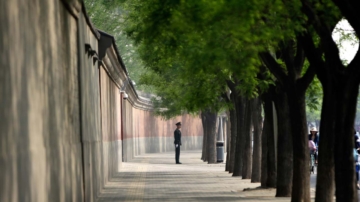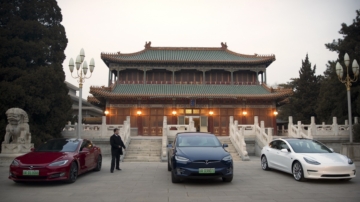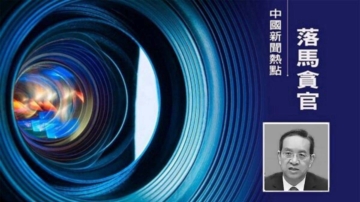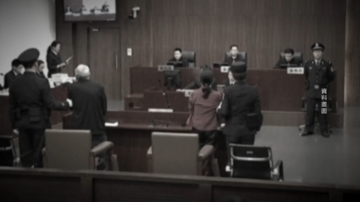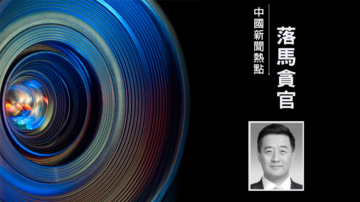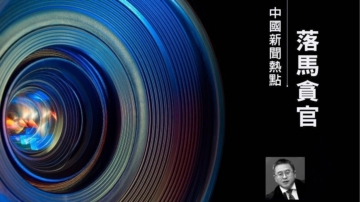【新唐人2013年01月14日訊】習近平日前在主持十八大政治局第一次集體學習時,強調「馬列主義毛思想不能丟」,並且「堅持中國特色社會主義」,以及「共產黨的領導地位」。海外媒體認為,這「三大不能改」正是中共政權危機的根源,如果習、李逃避政治改革,今後面臨的風險可能更大。請看報導。
海外媒體對習、李改革表示高度關注。《紐約時報》發表評論說,習、李面臨的最緊急的挑戰來自政治方面,而不是經濟領域。如果不作出政治努力,限制國家權力,抑制腐敗,允許人民在公共政策方面發表意見,中共新領導班子的所謂市場化經濟改革都不大可能會成功。
《紐約時報》還分析說,經濟改革離不開政治改革的原因非常簡單:恢復和保持經濟增長所需的政策將會損害既得利益集團——國企、地方政府以及官僚機構和統治精英家族的利益,他們通過腐敗聚斂了大量財富。
這些利益集團是共產黨的核心擁護者。換句話說,共產黨本身將會成為改革的目標。這三大「不能改」,顯然既可安撫黨內保守派,也代表了新領導集團的共識。
而「英國廣播公司(BBC)」則認為,中共努力通過鎮壓維持統治,將導致不穩定。推進改革雖然具有風險,但是逃避改革風險更大。
時事評論員林子旭:「習近平剛剛上臺,他必然要發表中共利益集團喜歡聽的言論,但是習近平他本人非常清楚自己目前的境遇,他要麼就像江澤民周永康這些人完全站在中共這一邊,要麼就改弦更張,站在老百姓這一邊。如果習近平既想要保住中共,又想討好民眾,在今天這條路根本走不通。」
時事評論員文昭分析,習近平所謂講毛澤東思想,是承接十八大的一個說法和口徑,未必代表他的真實觀點。習近平本人曾明確表示要走鄧小平的路。這意味著毛澤東思想只會作為共產黨的一個標誌保留,他的影響將越來越淡化。
時事評論員文昭:「所謂馬列主義,毛澤東思想不能丟的說法,主張的目地還是彌合中國大陸所謂頑固派和改革派之間的一個裂痕。他(習近平)想阻止和彌補由於薄熙來事件造成黨內的一個分裂。他目前想要做的是,想要維護這個體制不至於立刻崩塌、維護共產黨,不至於自己內部意識形態的裂痕,所導致的內部的渙散。」
對於中共利益集團死守的所謂「三大不能改」的保命原則,時事評論員林子旭說,能不能改不是共產黨說了算,共產黨說一不二的時代早就過去了,而且這種趨勢越來越明顯。
時事評論員林子旭:「這種變化的原因主要有兩點,第一就是,網絡技術的快速發展,讓中國人越來越清醒;第二,中共的衰弱,讓中國人內心的恐懼越來越少,可以肯定的是,中國人在未來必然更加清醒勇敢。只要網絡構成的輿論環境在,中共就必然會一點點的被遏制,甚至被扼殺。」
從「南周事件」上看,中宣部再次放言:黨管媒體的原則不能動搖。文昭認為,這是習近平作出的一個嚐試,想看中共的「黨性」到底多大程度上,能和現行的「憲法」框架相容。
文昭:「習近平未來的政治目標,政治手段的可塑性還比較大,現在不能說他絕對不會做甚麼,他體現出來的傾向性還是比較明顯的,他目前還是要維持中共的極權體制,不希望立刻去做一個結構性的深層制度上的變化。」
文昭還表示,中共不僅是政治上的極權,它還要壟斷人民的思想,是哲學意義上的絕對極權,跟「憲政」絕對不能相容。文昭說,任何想把中共集權制度改成「憲政」的努力,最後都會失敗。
採訪/常春 編輯/許旻 後製/周天
Xi Jinping Proposes “Three Adherence” Policies
Xi Jinping recently proposed “three adherence” policies in
his speech to Politburo members of the 18th Party Congress.
“Adherence-to Marxism-Leninism & Mao Zedong Thought”.
“Adherence to socialism with Chinese characteristics”.
“Adherence to the leadership of the
Chinese Communist Party (CCP)”.
International media commented that these three
policies are the root cause of CCP regime’s crisis.
Moreover, avoiding political reform will
be riskier for the new CCP administration.
The touting of reform by the CCP has
raised concerns in international media.
The New York Times commented that “Xi Jinping’s
most urgent challenge is political, not economic.”
The regime’s market-oriented economic reforms
are “unlikely to succeed without political efforts
to curb the power of the state, control corruption
and give the people a voice in public policy.”
The NY Times’ article analyzed reasons why economic
reform cannot take place without political reform.
“Economic initiatives needed to revive and sustain growth
are those that will hurt the entrenched interest groups.”
They are “state-owned enterprises, local governments,
as well as the bureaucracy and families of the ruling elite”.
These groups “have amassed
huge wealth through corruption”.
They “form the core constituencies of the Communist Party”.
“In other words, the party itself will
become the target of these reforms.”
Radio Free Asia reviewed that the “three adherence”
policies pacify CCP conservatives, and also reflect
the Party’s new leadership team’s common position.
The BBC quoted a commentary in The Economist,
saying, “the party’s efforts to maintain control through
repression are leading to instability, not stability.”
“Reform is risky, but avoiding it is riskier still.”
Lin Zixu, Critic: “Xi Jinping has just taken office, and
would certainly speak in favor of CCP interest groups.
But Xi himself is clearly aware of his own situation.
He has two choices, either to stand on the side
of the CCP, as did Jiang Zemin and Zhou Yongkang.
Alternatively, he can speak for the civilians.
But it’s a dead end for him if he wants to keep
the CCP, and also to curry favor with the public.”
Critic Wen Zhao comments on Xi Jinping’s
claim of adhering to “Mao Zedong Thought”.
Xi spoke along the same line set at the 18th Party
Congress, and this may not be Xi’s own view.
Xi Jinping has explicitly said before
to follow Deng Xiaoping's path.
Wen Zhao thinks that this implies that “Mao
Zedong Thought” will only be kept as a mask
for the CCP, with its influence further diluted.
Wen Zhao: “Xi’s claim of adhering to Marxism-Leninism
and Mao Zedong Thought aims to heal the division
between the hard-liners and the reformists.
His goal is to try to overcome the internal
fracture caused by the Bo Xilai scandal.
Now he wants to maintain the CCP
system to prevent its immediate collapse.”
Lin Zixu says that the CCP actually doesn’t
have the final say on its alleged “adherence”.
The reality has shown an increasing shift on this.
Lin Zixu: “There are two causes behind the change.
Firstly, the rapid development of internet
technology has helped the Chinese to awaken.
Secondly, the CCP's decay has helped reduce
the Chinese people’s fear towards the party.
To be certain, the public in China will be
more conscious and braver in the near future.
As long as the internet-backed public voice exists,
the CCP is bound to be contained, and will finally perish.”
In the recent Southern Weekly incident, the CCP
Central Propaganda Department instructed that
“the Party’s control over media must not waver.”
Wen Zhao remarks that this is Xi Jinping’s attempt
to find out how much the compatibility of the CCP
"Party spirit" goes within the existing Constitution.
Wen Zhao: “Xi Jinping’s political goals
and political practices are quite adaptable.
We don’t know what he will do or not do, but now
his action has shown a quite obvious inclination.
That is, he still tries to maintain the CCP totalitarian regime,
and not to make a fundamental change in the system.”
Wen Zhao adds that the CCP is a
totalitarian system in terms of politics.
Furthermore, it controls people’s mind, an
absolute totalitarianism in terms of philosophy.
Both are not compatible with Constitutionalism.
Wen Zhao asserts that any attempt to transform the CCP
totalitarian system into a Constitution will end in failure.
海外媒體對習、李改革表示高度關注。《紐約時報》發表評論說,習、李面臨的最緊急的挑戰來自政治方面,而不是經濟領域。如果不作出政治努力,限制國家權力,抑制腐敗,允許人民在公共政策方面發表意見,中共新領導班子的所謂市場化經濟改革都不大可能會成功。
《紐約時報》還分析說,經濟改革離不開政治改革的原因非常簡單:恢復和保持經濟增長所需的政策將會損害既得利益集團——國企、地方政府以及官僚機構和統治精英家族的利益,他們通過腐敗聚斂了大量財富。
這些利益集團是共產黨的核心擁護者。換句話說,共產黨本身將會成為改革的目標。這三大「不能改」,顯然既可安撫黨內保守派,也代表了新領導集團的共識。
而「英國廣播公司(BBC)」則認為,中共努力通過鎮壓維持統治,將導致不穩定。推進改革雖然具有風險,但是逃避改革風險更大。
時事評論員林子旭:「習近平剛剛上臺,他必然要發表中共利益集團喜歡聽的言論,但是習近平他本人非常清楚自己目前的境遇,他要麼就像江澤民周永康這些人完全站在中共這一邊,要麼就改弦更張,站在老百姓這一邊。如果習近平既想要保住中共,又想討好民眾,在今天這條路根本走不通。」
時事評論員文昭分析,習近平所謂講毛澤東思想,是承接十八大的一個說法和口徑,未必代表他的真實觀點。習近平本人曾明確表示要走鄧小平的路。這意味著毛澤東思想只會作為共產黨的一個標誌保留,他的影響將越來越淡化。
時事評論員文昭:「所謂馬列主義,毛澤東思想不能丟的說法,主張的目地還是彌合中國大陸所謂頑固派和改革派之間的一個裂痕。他(習近平)想阻止和彌補由於薄熙來事件造成黨內的一個分裂。他目前想要做的是,想要維護這個體制不至於立刻崩塌、維護共產黨,不至於自己內部意識形態的裂痕,所導致的內部的渙散。」
對於中共利益集團死守的所謂「三大不能改」的保命原則,時事評論員林子旭說,能不能改不是共產黨說了算,共產黨說一不二的時代早就過去了,而且這種趨勢越來越明顯。
時事評論員林子旭:「這種變化的原因主要有兩點,第一就是,網絡技術的快速發展,讓中國人越來越清醒;第二,中共的衰弱,讓中國人內心的恐懼越來越少,可以肯定的是,中國人在未來必然更加清醒勇敢。只要網絡構成的輿論環境在,中共就必然會一點點的被遏制,甚至被扼殺。」
從「南周事件」上看,中宣部再次放言:黨管媒體的原則不能動搖。文昭認為,這是習近平作出的一個嚐試,想看中共的「黨性」到底多大程度上,能和現行的「憲法」框架相容。
文昭:「習近平未來的政治目標,政治手段的可塑性還比較大,現在不能說他絕對不會做甚麼,他體現出來的傾向性還是比較明顯的,他目前還是要維持中共的極權體制,不希望立刻去做一個結構性的深層制度上的變化。」
文昭還表示,中共不僅是政治上的極權,它還要壟斷人民的思想,是哲學意義上的絕對極權,跟「憲政」絕對不能相容。文昭說,任何想把中共集權制度改成「憲政」的努力,最後都會失敗。
採訪/常春 編輯/許旻 後製/周天
Xi Jinping Proposes “Three Adherence” Policies
Xi Jinping recently proposed “three adherence” policies in
his speech to Politburo members of the 18th Party Congress.
“Adherence-to Marxism-Leninism & Mao Zedong Thought”.
“Adherence to socialism with Chinese characteristics”.
“Adherence to the leadership of the
Chinese Communist Party (CCP)”.
International media commented that these three
policies are the root cause of CCP regime’s crisis.
Moreover, avoiding political reform will
be riskier for the new CCP administration.
The touting of reform by the CCP has
raised concerns in international media.
The New York Times commented that “Xi Jinping’s
most urgent challenge is political, not economic.”
The regime’s market-oriented economic reforms
are “unlikely to succeed without political efforts
to curb the power of the state, control corruption
and give the people a voice in public policy.”
The NY Times’ article analyzed reasons why economic
reform cannot take place without political reform.
“Economic initiatives needed to revive and sustain growth
are those that will hurt the entrenched interest groups.”
They are “state-owned enterprises, local governments,
as well as the bureaucracy and families of the ruling elite”.
These groups “have amassed
huge wealth through corruption”.
They “form the core constituencies of the Communist Party”.
“In other words, the party itself will
become the target of these reforms.”
Radio Free Asia reviewed that the “three adherence”
policies pacify CCP conservatives, and also reflect
the Party’s new leadership team’s common position.
The BBC quoted a commentary in The Economist,
saying, “the party’s efforts to maintain control through
repression are leading to instability, not stability.”
“Reform is risky, but avoiding it is riskier still.”
Lin Zixu, Critic: “Xi Jinping has just taken office, and
would certainly speak in favor of CCP interest groups.
But Xi himself is clearly aware of his own situation.
He has two choices, either to stand on the side
of the CCP, as did Jiang Zemin and Zhou Yongkang.
Alternatively, he can speak for the civilians.
But it’s a dead end for him if he wants to keep
the CCP, and also to curry favor with the public.”
Critic Wen Zhao comments on Xi Jinping’s
claim of adhering to “Mao Zedong Thought”.
Xi spoke along the same line set at the 18th Party
Congress, and this may not be Xi’s own view.
Xi Jinping has explicitly said before
to follow Deng Xiaoping's path.
Wen Zhao thinks that this implies that “Mao
Zedong Thought” will only be kept as a mask
for the CCP, with its influence further diluted.
Wen Zhao: “Xi’s claim of adhering to Marxism-Leninism
and Mao Zedong Thought aims to heal the division
between the hard-liners and the reformists.
His goal is to try to overcome the internal
fracture caused by the Bo Xilai scandal.
Now he wants to maintain the CCP
system to prevent its immediate collapse.”
Lin Zixu says that the CCP actually doesn’t
have the final say on its alleged “adherence”.
The reality has shown an increasing shift on this.
Lin Zixu: “There are two causes behind the change.
Firstly, the rapid development of internet
technology has helped the Chinese to awaken.
Secondly, the CCP's decay has helped reduce
the Chinese people’s fear towards the party.
To be certain, the public in China will be
more conscious and braver in the near future.
As long as the internet-backed public voice exists,
the CCP is bound to be contained, and will finally perish.”
In the recent Southern Weekly incident, the CCP
Central Propaganda Department instructed that
“the Party’s control over media must not waver.”
Wen Zhao remarks that this is Xi Jinping’s attempt
to find out how much the compatibility of the CCP
"Party spirit" goes within the existing Constitution.
Wen Zhao: “Xi Jinping’s political goals
and political practices are quite adaptable.
We don’t know what he will do or not do, but now
his action has shown a quite obvious inclination.
That is, he still tries to maintain the CCP totalitarian regime,
and not to make a fundamental change in the system.”
Wen Zhao adds that the CCP is a
totalitarian system in terms of politics.
Furthermore, it controls people’s mind, an
absolute totalitarianism in terms of philosophy.
Both are not compatible with Constitutionalism.
Wen Zhao asserts that any attempt to transform the CCP
totalitarian system into a Constitution will end in failure.

